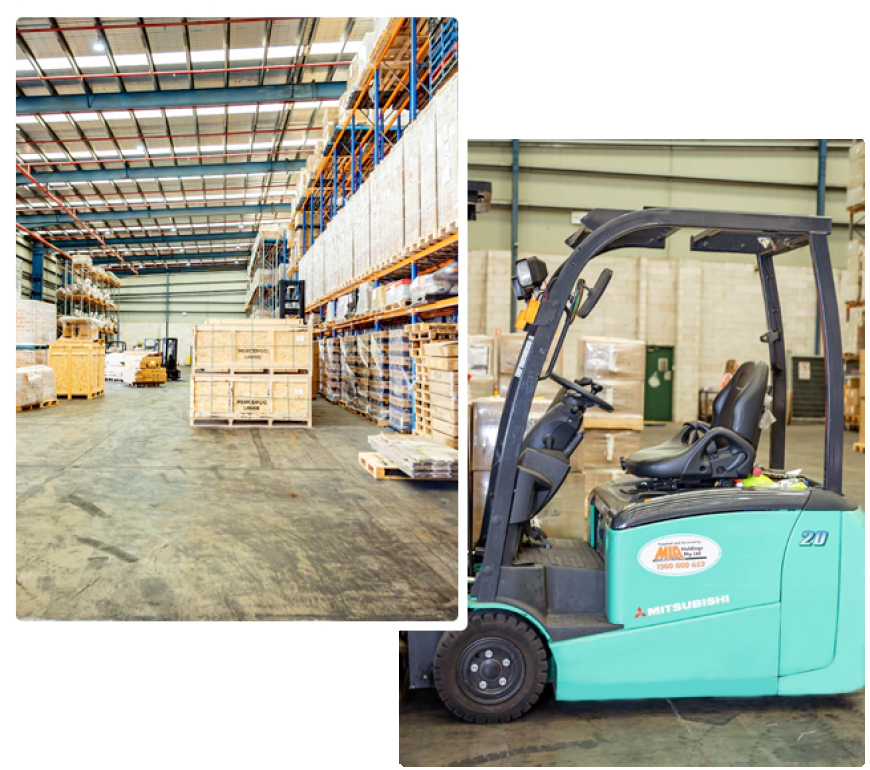What is 3PL?

today's fast-paced business environment, companies are constantly seeking ways to streamline their operations and enhance efficiency. One such solution gaining traction is 3PL Warehouse Melbourne. This article delves into the intricacies of third-party logistics (3PL) warehousing, its significance, advantages, and challenges in Melbourne, Australia.
What is 3PL?
Third-party logistics (3PL) refers to the outsourcing of logistics and supply chain management functions to a specialized provider. These services include warehousing, transportation, distribution, and fulfillment. In Melbourne, 3PL warehousing plays a pivotal role in optimizing supply chain operations for businesses across various industries.
Importance of 3PL Warehousing
In the dynamic marketplace of Melbourne, efficient logistics management is vital for businesses to stay competitive. 3PL warehousing offers a strategic advantage by providing access to advanced infrastructure, expertise, and resources without the need for significant capital investment.
Definition and Scope
Defining 3PL Warehousing
3PL warehousing encompasses the storage, handling, and distribution of goods by an external logistics provider. These facilities are equipped with state-of-the-art technology and skilled personnel to manage inventory effectively.
Scope of Services
Apart from storage, 3PL providers offer value-added services such as order fulfillment, kitting, labeling, and returns management. This comprehensive approach ensures seamless integration into the client's supply chain network.
Advantages
Efficiency and Cost Savings
By leveraging the expertise of 3PL providers, businesses can streamline their logistics operations, leading to improved efficiency and cost savings. Outsourcing warehousing functions eliminates the need for investments in infrastructure and manpower, allowing companies to focus resources on core activities.
Scalability
3PL warehousing offers scalability to accommodate fluctuating demand and seasonal variations. Clients can adjust storage space and resources according to their requirements, ensuring optimal utilization and cost-efficiency.
Focus on Core Competencies
Outsourcing logistics functions enables companies to concentrate on their core competencies, such as product development, marketing, and customer service. This strategic focus enhances competitiveness and accelerates business growth.
Disadvantages
Loss of Control
Entrusting critical logistics functions to a third-party provider entails relinquishing a degree of control over operations. While 3PL partnerships offer expertise and efficiency, businesses must navigate potential challenges related to transparency and accountability.
Potential Communication Issues
Effective communication between the client and 3PL provider is essential for seamless operations. However, miscommunication or delays in information sharing can lead to disruptions in the supply chain, impacting customer satisfaction and brand reputation.
Dependency Risks
Overreliance on 3PL providers exposes businesses to dependency risks. Any disruptions or shortcomings on the part of the logistics partner could have cascading effects on the entire supply chain, highlighting the importance of contingency planning.
Technologies
Automation in 3PL Warehousing
Automation technologies such as robotics, RFID, and IoT are revolutionizing warehouse operations. Automated systems enhance efficiency, accuracy, and throughput while reducing labor costs and minimizing errors.
Robotics and AI Integration
Robotic systems powered by artificial intelligence (AI) play a crucial role in material handling, order picking, and inventory management. These advanced technologies optimize warehouse processes and enable real-time decision-making for enhanced productivity.
Inventory Management Systems
Sophisticated inventory management systems provide visibility and control over stock levels, order fulfillment, and replenishment. Cloud-based platforms offer scalability and accessibility, allowing businesses to monitor operations remotely and make data-driven decisions.
Trends
Sustainable Practices
Sustainability is a growing concern in the logistics industry, prompting 3PL providers to adopt eco-friendly initiatives. From energy-efficient warehouses to green transportation solutions, sustainable practices contribute to environmental conservation and cost reduction.
Customer-Centric Approach
In an era of heightened customer expectations, 3PL providers are focusing on delivering exceptional service experiences. Personalized solutions, transparent communication, and flexible delivery options enhance customer satisfaction and loyalty.
Data Analytics for Optimization
Data analytics tools empower 3PL providers to analyze vast amounts of data and derive actionable insights. Predictive analytics, demand forecasting, and route optimization optimize supply chain processes, driving efficiency and profitability.
Challenges
Labor Shortages
The logistics industry faces challenges in recruiting and retaining skilled labor, particularly in warehouse operations. Labor shortages can impede productivity and increase operational costs, necessitating innovative workforce management strategies.
Security Concerns
Warehouse security is a critical consideration due to the risk of theft, vandalism, and unauthorized access. Implementing robust security measures such as surveillance systems, access controls, and inventory tracking helps mitigate risks and safeguard assets.
Regulatory Compliance
Compliance with regulatory requirements and industry standards is essential for 3PL providers to operate legally and ethically. Navigating complex regulations related to safety, labor, and environmental practices requires diligence and expertise.
Conclusion
In conclusion, 3PL Warehouse Melbourne offers a myriad of benefits for businesses seeking to optimize their logistics operations. From efficiency gains and cost savings to scalability and technological innovation, 3PL warehousing plays a pivotal role in driving success in the dynamic marketplace. Despite challenges such as loss of control and labor shortages, the future outlook for 3PL remains promising, driven by advancements in technology and a commitment to customer satisfaction.
FAQs
- How do 3PL warehouses benefit businesses?
- What technologies are transforming 3PL warehousing?
- What challenges do companies face when outsourcing logistics functions?
- How can businesses mitigate risks associated with 3PL partnerships?
- What role does data analytics play in optimizing 3PL operations?
- How are 3PL providers addressing sustainability concerns?







